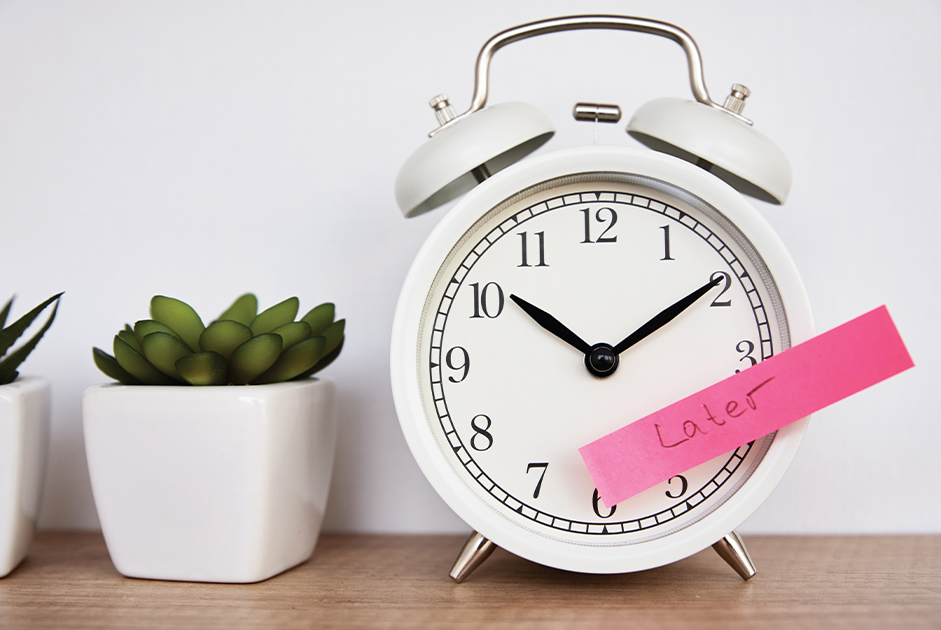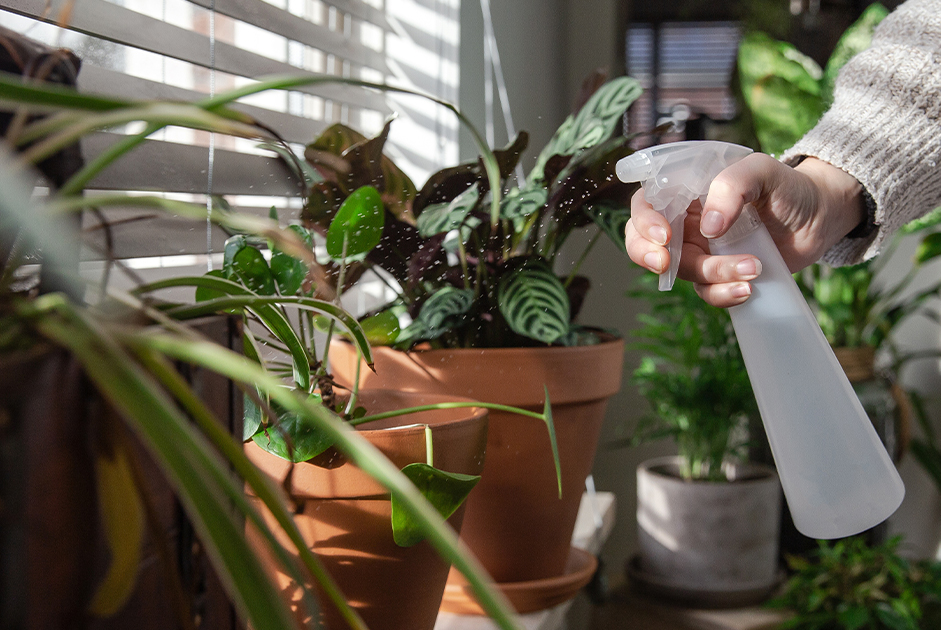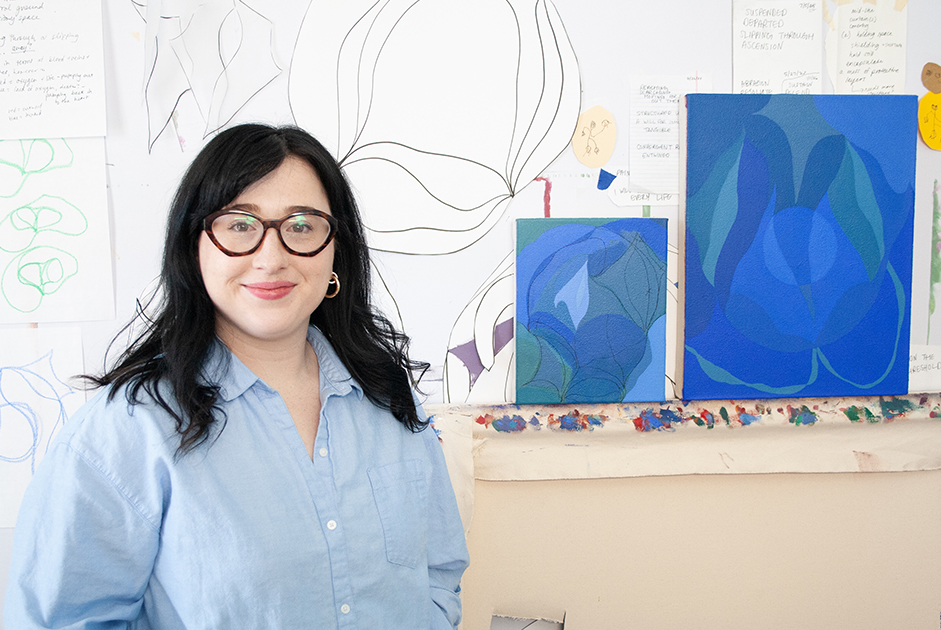by KAREN COOPER
You may have heard the saying, never put off until tomorrow what you can do the day after tomorrow? Funny, right? Not so much….
Procrastination. Webster’s dictionary says it is:
“To put off intentionally the doing of something that should be done.”
Most of us procrastinate. We feel guilty about it and criticize ourselves for it. And yet we still do it. Why is it so easy to fall into this trap even when we know better? According to some psychologists, the answer is not that people are lazy or have poor time management skills. Instead, research suggests that procrastination is a problem related to our emotions and that learning to manage negative emotions effectively can help us overcome it.
So why do we do it?
The temptation to say no to distractions for instant gratification is too great…and this is exactly what makes the procrastination cycle really vicious. We know that when we are rewarded for something, we tend to keep doing it. If putting off a task provides us relief, it feels like a reward so we continue the cycle. And there you have it! What may have been an occasional problem can turn into a chronic habit.
We may also procrastinate when we are not able to manage negative feelings relating to a task (such as anxiety, boredom, frustration, and self-doubt). This is especially true of tasks that make us unsure of ourselves or stress us out. In scientific terms, when we are feeling stress because of something we need to do, the rational part of the brain (the prefrontal cortex) shuts down and the amygdala (the part of the brain that regulates our fear response) identifies the task as an actual threat to our self-esteem or our mental health which causes our brains to want to remove the threat by any means necessary!
How can we stop it?
You can begin by objecting to the unhelpful thoughts that occur when you think about doing the task. This could include thoughts of something being too hard, too overwhelming, or not doing something as well as another person. It could also include negative self-talk such as telling yourself you “never get things done on time”. If you identify these intrusive thoughts (that are at least an exaggeration and at most not even true), you can work to correct them. By changing the way we think about the tasks in front of us, we have the power to change the way we feel about the situation and then ultimately how we move forward with our responsibilities. It’s also important to let yourself off the hook for procrastinating so you’re not stuck in a cycle of guilt which will only compound the bad feelings associated with completing necessary tasks.
Start with a small step.
When I’m struggling with procrastination, I think of something my grandmother used to say. “Get at it, keep at it, and get through it.” Simple, but meaningful. Wise words from a woman who got through a lot in her day. So, when you have something you don’t particularly want to do but need to do…you simply take a small step. If a few minutes into it you are miserable, stop and go back to it later. However, it’s much more likely that you will keep working on a task once you’ve started. Find something that motivates you to get started. A special drink to give you a jolt (caffeinated or not), a reward for when you’ve gotten to a certain point. Whatever works for you. Break the task down into portions if that feels better to you and reward yourself for every step. By doing this you switch the negative feelings associated with the task to positive feelings.
At its core, procrastination is about emotions and not laziness or lack of work ethic. The solution doesn’t involve downloading time management apps, keeping your calendar scheduled up to the minute or mastering new levels of self-control. What it really comes down to is managing emotions in a new way and forgiving ourselves for not being perfect.



















